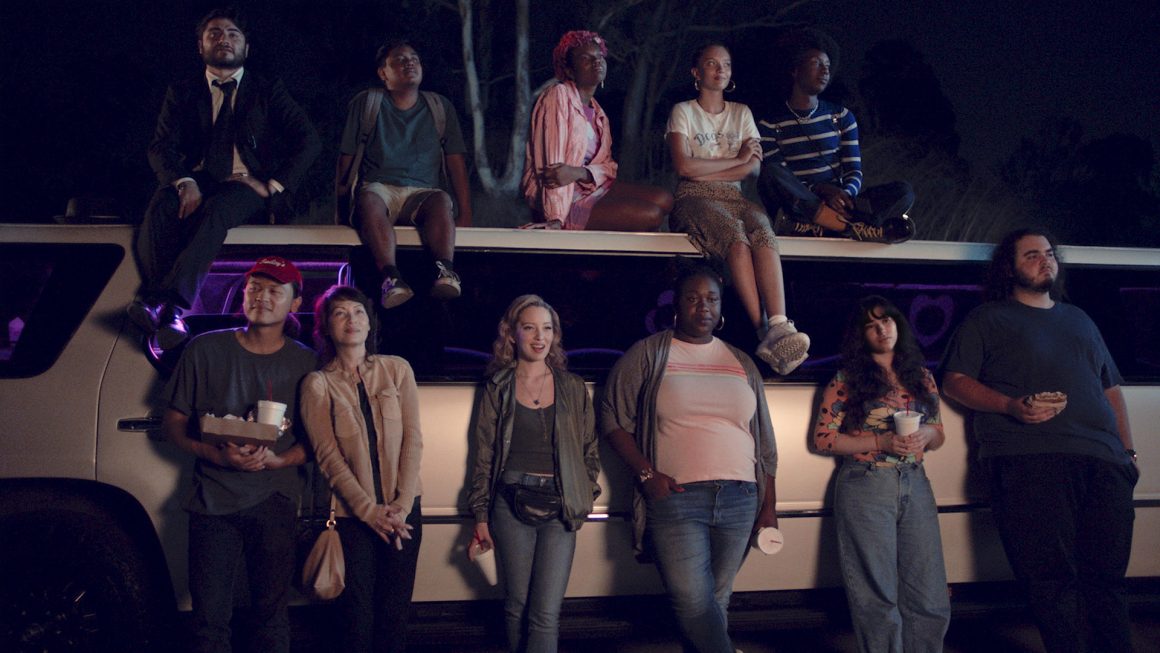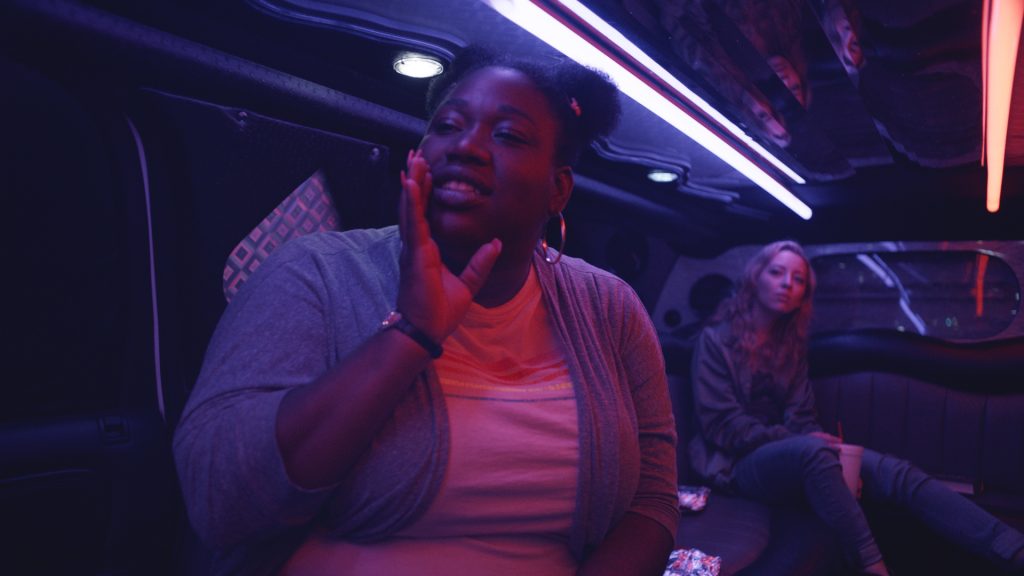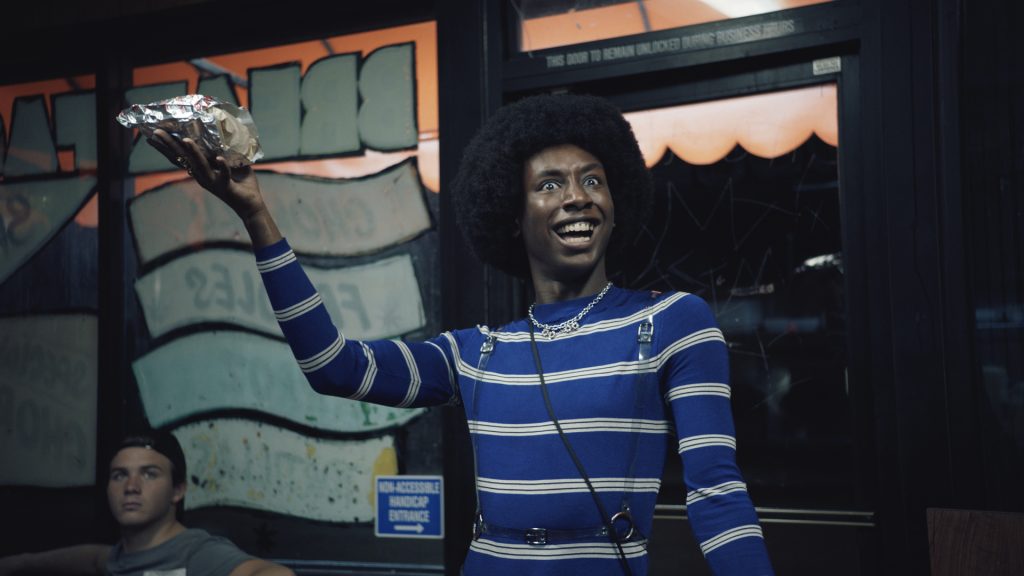
CUFF 2021 Reviews: Summertime
By Rachneet Randhawa, May 6, 2021—
Summertime (2020) is the story of 25 youths from Los Angeles who, over a hot summer day through their poetry, express life, love, heartache, family, home and fear by weaving in and out of each other’s stories. The entirety of the film is a feature-length poetry slam and an inspirational spoken-word ensemble that is not only a tribute to the art of poetry itself but self love through poetic justice. This film is best described as your favourite YouTube vlogger meets rap battle show duking it out amongst the 12 featured poets. As a story of Los Angeles it “speaks to the vitality of a generation and an art form” as Lead Programmer and Manager of CUFF Brennan Tilley puts it. On the theme of spoken word poets and poetry slams he claims it was one of the selections at Sundance that he knew he had to bring back to Calgary.
The film originally premiered at the coveted Sundance Film Festival a couple of years ago. What was so remarkable about the way this film was crafted was that it takes a grassroots and bottom-up approach as it’s based on real-life stories of real poets in inner-city Los Angeles.
The story goes that the idea for the film originated when the director, Carlos López Estrada, discovered a poetry club for youth called GetLit and was immediately hooked by the raw emotion and profoundness when they spoke up about the reality of their everyday lives. If anything, this film knocks overdressed and perhaps even pretentious blockbuster movies like High School Musical out of the water. Why? Because it shines light on those who are otherwise underrepresented and marginalized — everybody from the Black 2LGBTQIA+ youth who is technically homeless and finds solace in best friends and mockingly hilarious new age selfie Yelp reviews to the guy who unabashedly embraces the Asian stereotype of studying and working a dead-end job to support his parents as a first generation immigrant.
This film speaks to what it means to be truly alive to experience both pain and pleasure, both love and hatred, both pain and purpose, both trauma and healing.

The setting of the film is in Venice Beach, a popular neighbourhood in Los Angeles, with the first featured poet — a spunky rollerblading guitarist — as a passerby commentator on the hustle and bustle of everyday downtown LA. Until of course she accidentally bumps into selfie-obsessed and touristy vacationers. The blunder of course is immediately snapped and posted to the socials in a millennial fashion. And from there comes the effortless transition into 11 other bold performers and their soulful poems.
Our first poet is Tyris who just wants his gosh-darn cheeseburger and endlessly searches for a decent burger joint throughout the fun flick. We are then introduced to Anewbyss and Rah, upcoming rappers who freestyle and make mixtapes to support their brand of hip hop that talks about everyday real-life problems and not the hype normal rap music beats to like power and status and fame. The next poet is a young lesbian woman who stands up to a homophobic man. We are then introduced to Walter and Anna who argue ferociously at the couple’s therapy with good old Dr. Busan with heated dialogue about failure to commitment and love. Next, a mute poet by the name of Jason continues to tag and vandalize public buildings with his name. This transitioning scene is eyeopening as it displays LA’s world famous and iconic street art as breathtaking and not simply graffiti but is a truism to the film itself — the city of dreamers.

The next poet is an insecure yet expressive young girl Sophie who has just experienced her first heartbreak and adamantly stocks her ex-boyfriend by wanting to be “incomparable and vast” and “boundless” and “uninhibited” wanting to come out of this pain intact. We then stumble upon Jia who works in her family’s restaurant as her mother tries to get her to lighten up and have fun through dancing. The next poet, who’s about to leave her hometown and off to college, talks about childhood, home, nostalgia, old neighbourhoods and growing up. Our next introduction is to Paulina, dining with her helicopter mother at a Mexican diner who refuses to allow her to go to a party. At the same time a flash mob and musical breaks out to visually flesh out the poem’s performance.
The next poet wee see reaches his breaking point after receiving backlash from rude customers as the newly promoted supervisor at an overcrowded fast food joint. He speaks up about the realities of being an ethnic minority in “good ol’ America” and the immigrant struggle that his parents face to give him a better life. He’s no Asian stereotype but instead he’s hustling to study, get ahead and break the shackles of poverty by working ironically at a dead-end job.
Our next poet, Markeisha (Keke), provides perhaps the swan song of the entirety of the film. She learns to stop being a hypocrite and realizes she has to take action on the advice she’s been doling out to all these broken kids and finally speaks up for herself. She finally faces Cyrus, the man who she loved and admired and the man who also verbally and emotionally abused her. And instead of destroying him — because he is so not worth her time — she pours her blessing into this sonnet of defeat and recovery. The last poet takes a final detour to the skyline of downtown Los Angeles and once and for all speaks of his pocket full of dreams and to spread your wings to fly as you can do it if you really try.
If you enjoy slamming poetry, music and a roaring good time, this flick is for you. Because it’s so broad and diverse, its palette and creativity resists a label. Each of the featured poems was rattled off, not to call out others for their oppression and daily struggles, but rather calling others to bear witness to their hopes, desires, setbacks and opportunities. As these youth so staunchly expressed with diverse issues and emerging voices, poetry is not merely a tool for crying and complaining, nor is it random scribbles of cheesy love poems — poetry is power, is justice. In a way this film isn’t just another feel-good film. It was selected to be screened for a reason — to uplift those who are missed and are searching for an outlet through art and literature. As they say, the pen is mightier than the sword.
